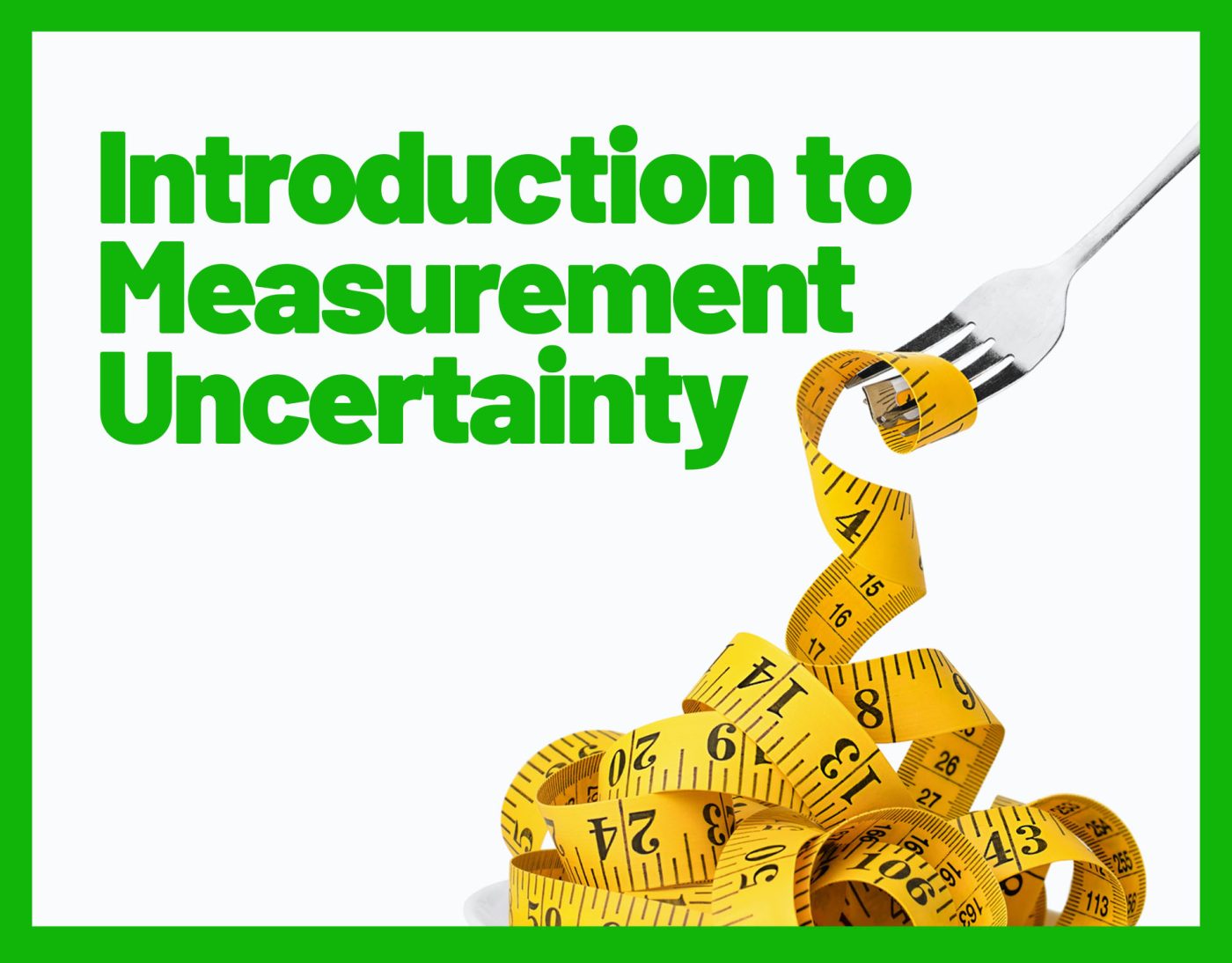Introduction to Measurement Uncertainty
Learn how measurement uncertainty (MU) is used in laboratories to ensure reliable and accurate measurement results

Quicklinks
Course overview
This introductory course provides an overview of key concepts in MU. It covers the fundamental principles of measurement, how to identify common sources of uncertainty and outlines the steps for quantifying and reporting uncertainty according to international Standards.
Measurement uncertainty quantifies doubt to promote confidence in the accuracy of measurement results
Learning outcomes
By the end of this course, participants will be able to:
- define key concepts in MU
- explain the significance of MU in laboratory work
- describe MU requirements in international Standards such as ISO/IEC 17025
- distinguish between random and systematic errors and their impact on measurement results
- apply statistical methods to analyse measurement data including mean, standard deviation and confidence intervals
- identify and quantify the sources of uncertainty in a measurement process using appropriate techniques and tools
- determine combined uncertainty and communicate this value effectively in reports and technical documents.
Who should attend
This course is ideal for laboratory professionals and technical staff involved in measurement processes and/or quality assurance. It is particularly valuable for:
- Laboratory Technicians & Scientists – who perform measurements and need to understand how uncertainty in their measurements can impact the reliability of results
- Quality Managers – responsible for ensuring the reliability and accuracy of laboratory outputs and maintaining compliance with quality standards
- Laboratory Managers & Supervisors – who oversee measurement processes and need to make informed decisions based on measurement data
- Calibration Technicians – who need to understand and apply uncertainty concepts in their calibration work
- Researchers – who need to accurately report measurement results and their associated uncertainties
- New Graduates – entering laboratory roles and seeking to gain insight into measurement practices
- Professionals from industries relying on precise measurements – such as manufacturing, environmental monitoring and healthcare.
This course is also beneficial for laboratories preparing for or maintaining accreditation to Standards like ISO/IEC 17025 where demonstrating competence in evaluating MU is a requirement.
Delivery
Course delivery:
- Face-to-Face
- Virtual
Course content is delivered using engaging learning activities that include:
- individual and group work
- activities and scenarios that apply MU principles to real-life practice
- opportunities to evaluate understanding as the course progresses
Time:
- All virtual courses start at 9:00 am and finish at 5:00 pm (AEDT/AEST).
- All face-to-face courses start at 9:00 am and finish at 5:00 pm local time.
Locations:
- Face-to-face courses in Sydney, Melbourne and Brisbane are delivered at NATA Offices in those locations – see https://nata.com.au/contact-us/.
- Face-to-face courses in other locations are delivered at venues that are confirmed upon enrolment. These venues are typically in the CBD and are always conveniently located near public transport and/or with parking availability.
Duration
1 day
Cost
Member Rate: $781.15 (incl. GST)
Non-Member Rate: $919.00 (incl. GST)
Dates & booking
| Date | Time | Location | ||
| 16 September 2025 | 09:00 am - 05:00 pm | Virtual Course | ||
| 2 October 2025 | 09:00 am - 05:00 pm | Perth | ||
| 23 October 2025 | 09:00 am - 05:00 pm | Adelaide | ||
| 28 October 2025 | 09:00 am - 05:00 pm | Melbourne | ||
| 19 November 2025 | 09:00 am - 05:00 pm | Sydney | ||
| 25 November 2025 | 09:00 am - 05:00 pm | Virtual Course | ||
| 27 November 2025 | 09:00 am - 05:00 pm | Hobart |